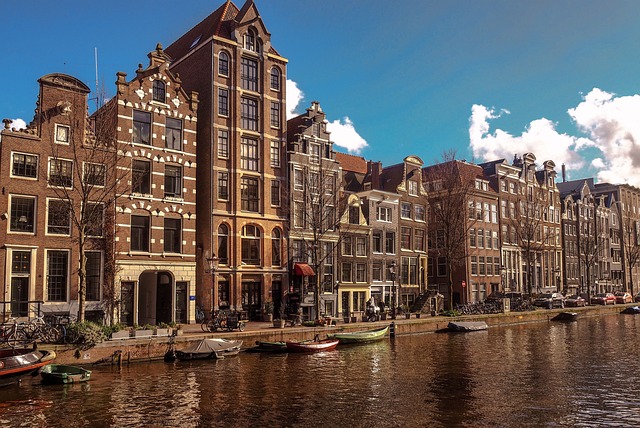Best Cities to Live in Belgium as an Expat

Belgium, often referred to as the “Heart of Europe,” is a small yet diverse country that offers a high quality of life, excellent infrastructure, and a rich cultural heritage. For expats looking to settle down, Belgium provides a welcoming environment with its multilingual population, efficient public services, and central location in Europe. Whether you’re moving for work, study, or simply seeking a new adventure, here are some of the best cities to live in Belgium as an expat.
1. Brussels: The Cosmopolitan Capital
As the capital of Belgium and the de facto capital of the European Union, Brussels is a vibrant, multicultural city that attracts expats from all over the world. With its mix of modernity and tradition, Brussels offers a dynamic lifestyle that caters to professionals, families, and students alike.
Why Choose Brussels?
- International Hub: Home to EU institutions, NATO headquarters, and numerous international organizations, Brussels is a magnet for diplomats, policymakers, and global professionals.
- Multilingual Environment: While French and Dutch are the official languages, English is widely spoken, especially in professional settings, making it easier for expats to adapt.
- Cultural Diversity: With over 180 nationalities represented, Brussels is one of the most cosmopolitan cities in Europe. You’ll find a wide range of international schools, restaurants, and cultural events.
- Public Transport: The city boasts an extensive and efficient public transportation system, including buses, trams, and metro lines, making it easy to get around.
Neighborhoods to Consider:
- Ixelles/Elsene: A trendy area known for its cafes, parks (like Parc du Cinquantenaire), and proximity to the European Quarter.
- Etterbeek: Popular among young professionals and students due to its proximity to the Vrije Universiteit Brussel (VUB) and ULB.
- Uccle/Ukkel: A more upscale residential area with green spaces and family-friendly amenities.
Drawbacks:
- Higher cost of living compared to other Belgian cities.
- Traffic congestion can be an issue during peak hours.
2. Antwerp: A Blend of Modernity and Tradition
Antwerp, Belgium’s second-largest city, is a thriving hub of fashion, art, and commerce. Known for its stunning architecture, diamond trade, and vibrant arts scene, Antwerp is a great choice for creative professionals and families.
Why Choose Antwerp?
- Fashion Capital: Antwerp is famous for its cutting-edge fashion industry, home to the prestigious Royal Academy of Fine Arts, which has produced world-renowned designers like Dries Van Noten and Ann Demeulemeester.
- Historic Charm: The city center is a UNESCO World Heritage Site, featuring landmarks like the Cathedral of Our Lady and the Grote Markt.
- Diverse Community: Antwerp has a large expat community, particularly among those working in the diamond industry or creative sectors.
- Port City: As one of Europe’s largest ports, Antwerp offers ample job opportunities in logistics, shipping, and trade.
Neighborhoods to Consider:
- Zuid (South Antwerp): A chic district filled with art galleries, designer boutiques, and upscale dining options.
- Het Eilandje: A revitalized waterfront area with modern apartments and trendy bars.
- Berchem: A quieter, family-friendly neighborhood with good schools and parks.
Drawbacks:
- Rent prices in the city center can be steep.
- The city can feel crowded during peak tourist seasons.
3. Ghent: A Student-Friendly City with Medieval Charm
Ghent is a hidden gem that combines medieval history with a youthful, energetic vibe. As a university town, it has a lively atmosphere and is particularly popular among students and young professionals.
Why Choose Ghent?
- Affordable Living: Compared to Brussels and Antwerp, Ghent offers a more affordable cost of living while still maintaining a high standard of life.
- Cultural Scene: Ghent hosts several festivals throughout the year, including the Ghent Light Festival and the Gentse Feesten , a massive street festival with music, food, and entertainment.
- Green Spaces: The city is dotted with parks, canals, and rivers, offering plenty of opportunities for outdoor activities.
- Bike-Friendly: Ghent is one of the most bike-friendly cities in Europe, with dedicated cycling lanes and a car-free city center.
Neighborhoods to Consider:
- Gravensteen Area: Close to the iconic Gravensteen Castle and the historic city center.
- Mariakerke: A suburban area with larger homes and green spaces, ideal for families.
- Sint-Denijs-Westrem: A quieter neighborhood with easy access to both the city and surrounding countryside.
Drawbacks:
- Smaller job market compared to Brussels and Antwerp.
- Some areas may lack the diversity found in larger cities.
4. Leuven: A University Town with a Vibrant Atmosphere
Leuven, home to the prestigious Katholieke Universiteit Leuven (KU Leuven), is a small yet bustling city that combines academic excellence with a lively social scene. It’s an excellent choice for students, researchers, and young professionals.
Why Choose Leuven?
- Student Life: With a large student population, Leuven has a youthful energy and plenty of bars, cafes, and cultural events.
- Historic Beauty: The city boasts stunning Gothic architecture, including the famous Town Hall and St. Peter’s Church.
- Innovation Hub: KU Leuven is one of Europe’s top universities, attracting researchers and academics from around the globe.
- Compact Size: Leuven is small enough to explore on foot or by bike, making it easy to navigate.
Neighborhoods to Consider:
- Oude Markt: Known as the “longest bar in the world,” this square is lined with pubs and is the heart of the city’s nightlife.
- Heverlee: A residential area close to the university campus, popular among students and faculty.
- Wijgmaal: A quieter suburb with family-friendly amenities.
Drawbacks:
- Limited job opportunities outside academia.
- Can feel too small or quiet for some expats.
5. Bruges: A Fairytale City with a Relaxed Pace
Bruges, often called the “Venice of the North,” is a picturesque city known for its medieval architecture, cobblestone streets, and romantic canals. While it’s a popular tourist destination, Bruges also offers a peaceful and charming lifestyle for expats seeking a slower pace.
Why Choose Bruges?
- Tourist Appeal: Bruges is a UNESCO World Heritage Site and one of the most beautiful cities in Europe, making it a dream location for those who appreciate history and culture.
- Safe and Serene: The city is relatively small and safe, with low crime rates and a relaxed atmosphere.
- Proximity to the Coast: Bruges is just a short drive from the Belgian coast, offering easy access to beaches and seaside towns like Ostend.
- High Quality of Life: Despite its popularity with tourists, Bruges remains a quiet and pleasant place to live, with a strong sense of community.
Neighborhoods to Consider:
- Historic Center: Perfect for those who want to live in the heart of the action, surrounded by medieval buildings and canals.
- Sint-Michiels: A quieter residential area with beautiful views of the surrounding countryside.
- Assebroek: A suburban neighborhood with larger homes and green spaces.
Drawbacks:
- Limited job opportunities, especially outside the tourism sector.
- Can feel too quiet or isolated for some expats.
6. Liège: A Dynamic City in Wallonia
Liège, located in the French-speaking region of Wallonia, is a dynamic and industrial city with a rich cultural heritage. It’s less touristy than other Belgian cities but offers a unique blend of history, innovation, and diversity.
Why Choose Liège?
- Cultural Hub: Liège is known for its vibrant arts scene, with museums, theaters, and music venues hosting regular events.
- Affordable Living: The cost of living in Liège is generally lower than in Flanders, making it an attractive option for budget-conscious expats.
- Transport Links: Liège is well-connected by train and highway, with easy access to Brussels, Germany, and the Netherlands.
- Foodie Paradise: The city is famous for its hearty cuisine, including specialties like boulets à la liégeoise (meatballs in a sweet-and-sour sauce).
Neighborhoods to Consider:
- Outremeuse: A bohemian quarter with colorful houses, local markets, and a laid-back vibe.
- Cité Administrative: Close to the city center and major administrative buildings, ideal for professionals.
- Chênée: A suburban area with larger homes and green spaces, perfect for families.
Drawbacks:
- Industrial areas can detract from the city’s aesthetic.
- Less English spoken compared to Flanders.



